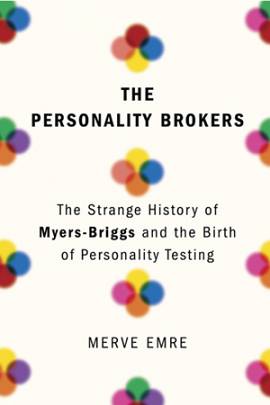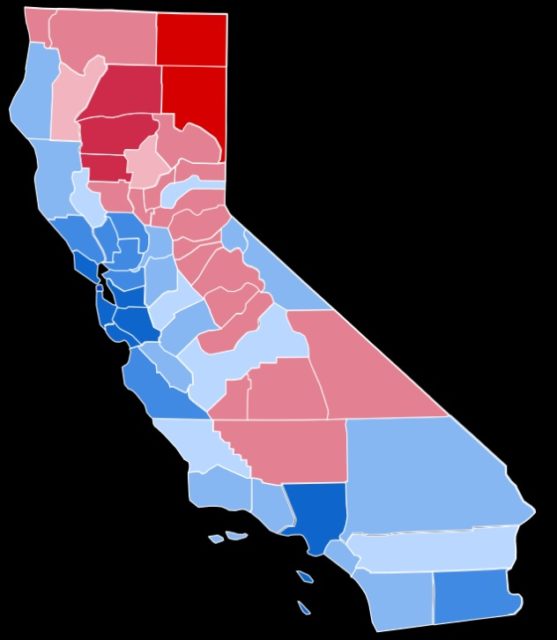The Great War
Published on 22 Oct 2018The Austrian part of the dual monarchy that was the Austro-Hungarian Empire experienced the war quite distinctly and the inner political machinations directly influenced the outbreak of the war.
October 23, 2018
Austria During World War 1 I THE GREAT WAR Special
Myers-Briggs Type Indicators as a “variety of psychobullshit rune-gazing”
In the latest issue of Reason, Katrina Gulliver reviews a new book on a pop psychology notion that escaped into the wild for a generation, wreaking havoc in corporate HR departments across the country:
The Myers-Briggs test and others like it were huge in the corporate world in the 1980s and ’90s. Individuals took them to see what kind of careers they should pursue; H.R. offices used them to decide who to hire or promote. In The Personality Brokers, Merve Emre explores how, precisely, this variety of psychobullshit rune-gazing was born.
Briggs and Myers were a mother and daughter who shared a personal fascination with psychology. Katharine Briggs, born in the last quarter of the 19th century, was one of the few women of her generation to gain a college degree. Like most female members of the upper-middle-class in her time, however, she didn’t pursue a career, instead marrying young and raising a family. Rather than the chemistry she had studied at college, children became her research subject.With an intensity that sounds frightening, Briggs believed she could develop a scientific approach to raising well-behaved, intelligent children. She seemed to do a good job with her daughter Isabel, and other parents soon sought her advice. Briggs was well-connected — her husband was a Washington bureaucrat, so of course she knew magazine editors. Soon she was writing columns for various publications about ideal parenting and child behavior.
As a devotee of psychology, she developed a correspondence with Carl Jung. She drew on his psychological theories to interpret the personalities of kids, the better to advise their parents on behavior management. The 16 “types” of the Myers-Briggs index directly relate to Jung’s thinking, and Jung’s approval of her ideas offered validation for her explorations.
But the commercial Myers-Briggs test came later, and it was far more her daughter’s achievement. Isabel Myers was also fascinated with psychological type. But being a generation younger, she was better placed to pursue this professionally. Again, she had the advantages of social connection: Her husband was an attorney, and she happened to know Edward Northup Hay, one of the first personality consultants in the United States.
In 1943, Hay allowed Briggs — despite her having no formal qualifications or experience — to offer her test to his clients. The takers were few: mostly small outfits, sometimes just a single test for a potential employee. She continued working to perfect the evaluation, trying it on friends and neighbors.
Quantum Computing – The World of the Future – Extra History – #6
Extra Credits
Published on 21 Oct 2018Credit to Alisa Bishop for her art on this series: http://www.alisabishop.com/
What does the quantum revolution mean today? We talk about quantum computing application possibilities in machine learning, cybersecurity, environmental science, and more.
A tremendous thank-you to Alexander Tamas, the “mystery patron” who made this series possible. We finally found room in our busy production schedule to create and air this series alongside our regularly scheduled, patron-approved Extra History videos. A huge thank you to the multiple guest artists we got to work with, to Matt Krol for his skillful wrangling of the production schedule and keeping everyone happy, and to our Patreon supporters for your patience and support.
Support us on Patreon! http://bit.ly/EHPatreon
California (secessionist) dreaming
In the latest Libertarian Enterprise, L. Neil Smith suggests that the kindest thing to do to California is to allow it to secede from the Union:
… some Californians bleat that they want to secede from a United States that threatens to make them straighten up and fly right. Superficially, that might be a workable idea: on paper, California has one of the largest, most powerful economies in the world — bigger than that of many independent nations. It has a long, wonderful coastline and a couple of really good natural ports. Its agricultural sector is second to none. There is oil and gas within easy reach. It has no real military defenses, but I’m sure they’d be more than willing to leech off America’s defenses, our Navy, our Air Force, and our nuclear umbrella, like the deadbeat pajama boys they resemble, living in their mothers’ basements.
But wait. On the reasonable assumption that the California secession movement is limited to people in the counties that voted for Hillary Clinton, and that people in the counties who voted for Donald Trump do not want to secede, I consulted a California county-by-county election map for 2016. Blue counties dominate all but a tiny spot on the northern coast, which is too bad; most of the interior — the most productive part of the state — is bright red.
So here’s my brilliant idea. Instead of fighting another bloody, stupid, senseless War of Secession like the one we had in 1865, let’s grandly and magnanimously permit the state of California to secede — even insist on it — one county at a time. Those counties that vote to secede may do so and create the People’s Republic of Californistan, or whatever.
In exchange for defending this dog’s breakfast of a polity, we will keep all of our military bases and installations, somewhat like Guantanamo Bay Naval Air Station in Cuba. I believe the legal term is “adverse possession”. Those counties that do not vote to secede — we wouldn’t want them to become like the captive peoples and nations of Europe during the Cold War — may remain in the Union, joining the adjacent state (mostly Nevada) or forming their own. To paraphrase the Borg, “We will add their productiveness to our own.”
However the trouble (for California, anyway), if you look at the map, is that county-by-county secession leaves the people’s Republic without visible means of support, a vagrant state, as it were, full of pencil-neck politicos and other worthless parasites, guilty of loitering on our Left Coast. They’re already bankrupt, after decades of Leninist-Stalinist policies. Now they will never recover with their productive counties gone — and we get their avocados!
Let them eat software.
Finding Meaning in The Incredibles
Foundation for Economic Education
Published on 4 Oct 2018What sustains people through difficult times is a sense of meaning, not happiness or wealth. In The Incredibles, Bob had to learn to find the same level of meaning in being a husband and father as he did in being a superhero. How do you find meaning in your life?
QotD: The boomers
How did my generation do? Well, we get blamed for being selfish and self-obsessed and soft and pushing up house prices and saddling the next generation with hideous debts and nowhere to live and I suppose that’s not entirely unfair.
We are ridiculously obsessed with food, buy too many things and have too many clothes. But we didn’t start a war. Well, not a big one. And we didn’t nuke anyone. We defused the Cold War. We believed in the collective good. Although we came to confuse gestures with actions and we think going on a march and writing a letter are the same as doing something, making the world better.
We were the generation that were relentlessly for civil rights, human rights, gay rights, disability rights, equality, fairness. We were implacably against racism and censorship. We defended freedom of speech, religion and expression. We will leave the world better fed and better off than when we arrived in it.
Britain is a far happier, richer and fairer place than it was 60 years ago. And if you think that’s wishful self-promotion, you have no idea how grim and threadbare Britain in the Fifties was. You weren’t there, you don’t remember.
A.A. Gill, “Life at 60”, Sunday Times, 2014-06-29.





